Historical Knowledge Multiplication Worksheets for Ages 6-8
5 filtered results
-
From - To
Discover our engaging Historical Knowledge Multiplication Worksheets tailored for children ages 6-8! These unique resources not only focus on essential multiplication skills but also incorporate fascinating historical facts and figures, making math both educational and fun. Designed to spark curiosity, each worksheet combines learning with elements of history, ensuring young learners grasp math concepts while being inspired by the past. Perfect for at-home learning or enriching classroom activities, these worksheets promote critical thinking and reinforce key multiplication concepts. Explore the intersection of history and math, encouraging your child's educational journey through captivating content and interactive exercises. Dive into learning today!
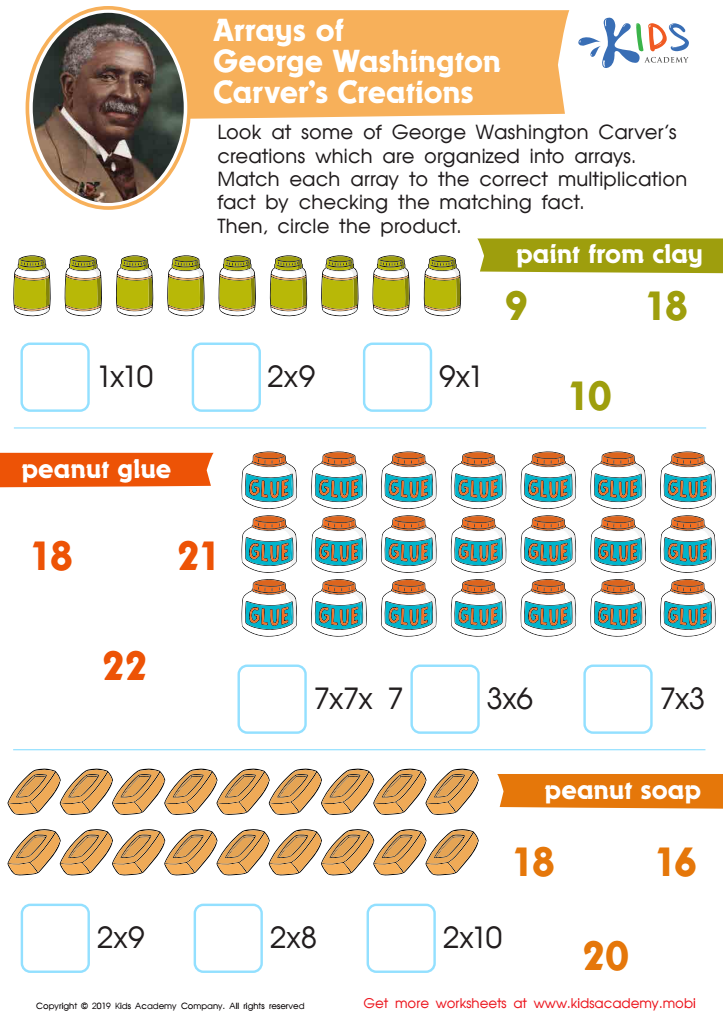

Arrays of George Washington Carver’s Creations Worksheet
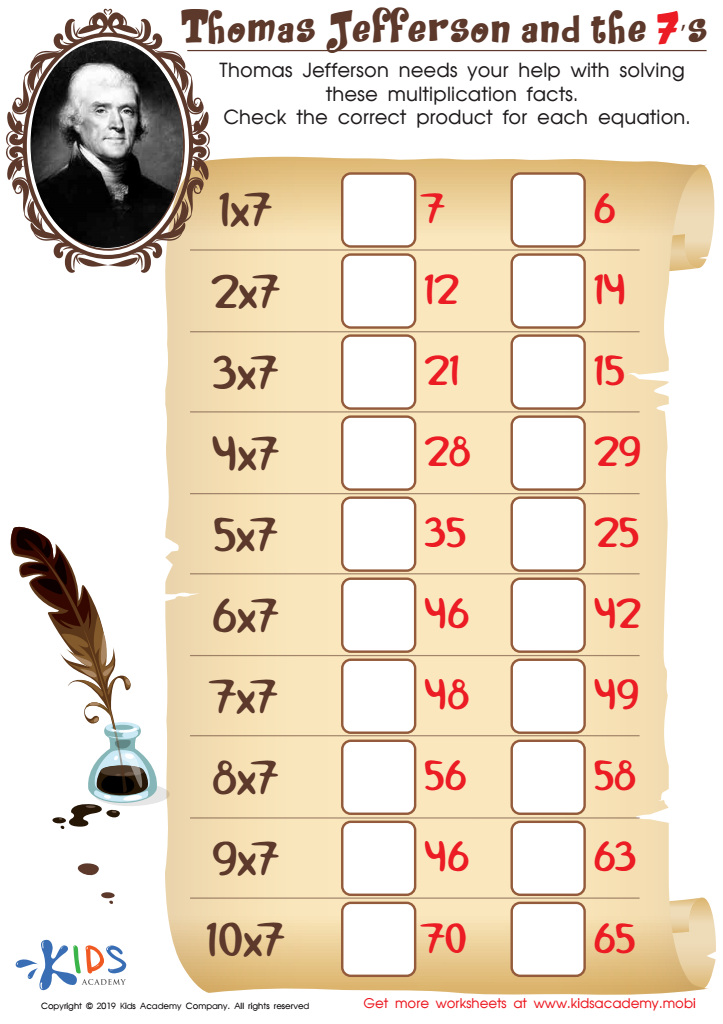

Thomas Jefferson and the 7’s Worksheet
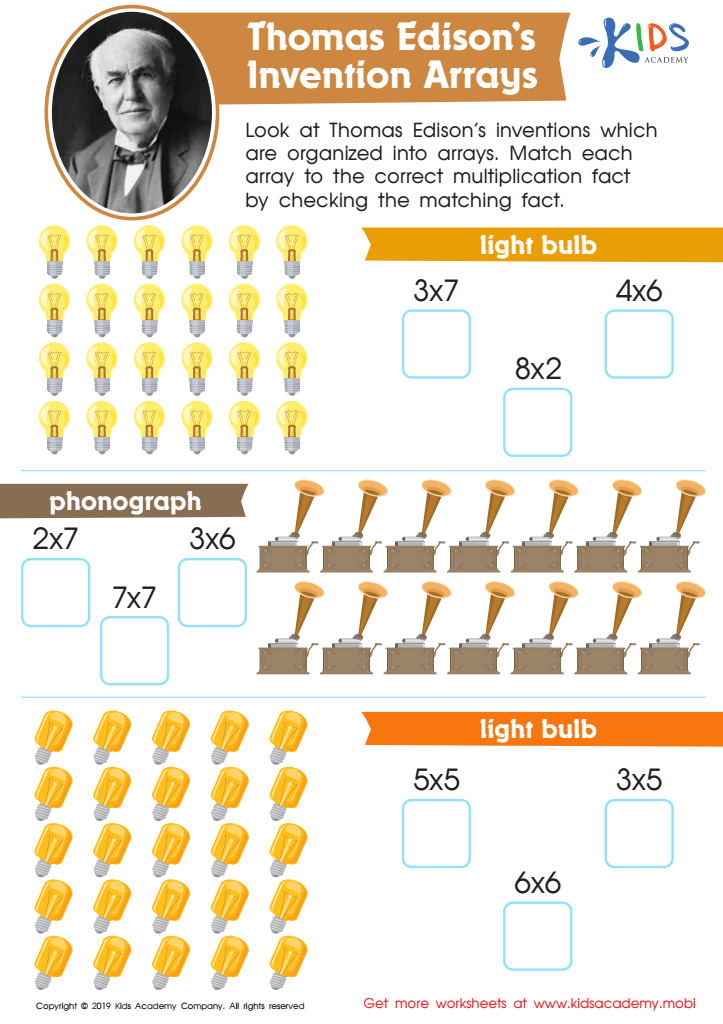

Thomas Edison’s Invention Arrays Worksheet
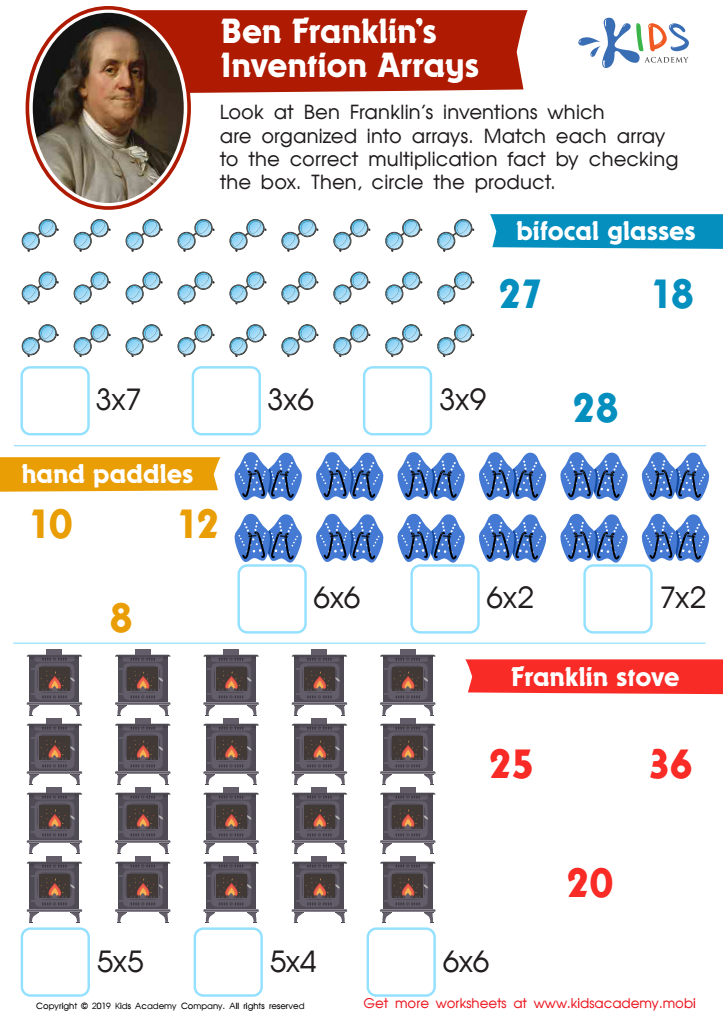

Ben Franklin’s Invention Arrays Worksheet
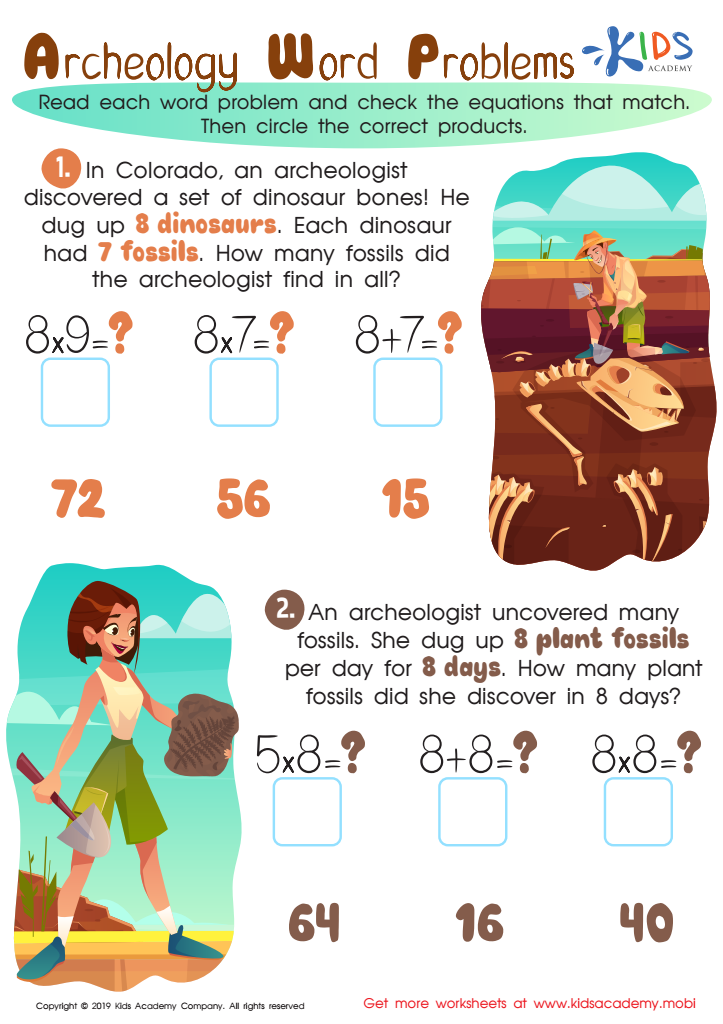

Archeology Word Problems Worksheet
Understanding Historical Knowledge Multiplication is essential for children aged 6-8 because it nurtures critical thinking and enhances their comprehension of history. At this stage, children are like sponges; they absorb information rapidly, and teaching historical context helps them connect the dots between events, people, and ideas. This multiplication of historical knowledge encourages a more nuanced understanding of their world.
Incorporating elements like stories, timelines, and relatable figures from history can be engaging and make learning more memorable. It lays a foundation for empathy, as children learn to appreciate diverse perspectives and cultures. This context also aids in the development of important skills, like analyzing cause and effect, which can fuel their problem-solving abilities.
Moreover, an understanding of history helps kids grasp the significance of civic engagement and social responsibility, fostering informed future citizens. Parents and teachers can motivate children’s curiosity and passion for learning through interactive activities like reenactments or discussions about historical figures. Ultimately, instilling a love of historical knowledge multiplication promotes lifelong learning and prepares children to navigate a complex, interconnected world with confidence and awareness.
 Assign to My Students
Assign to My Students






















